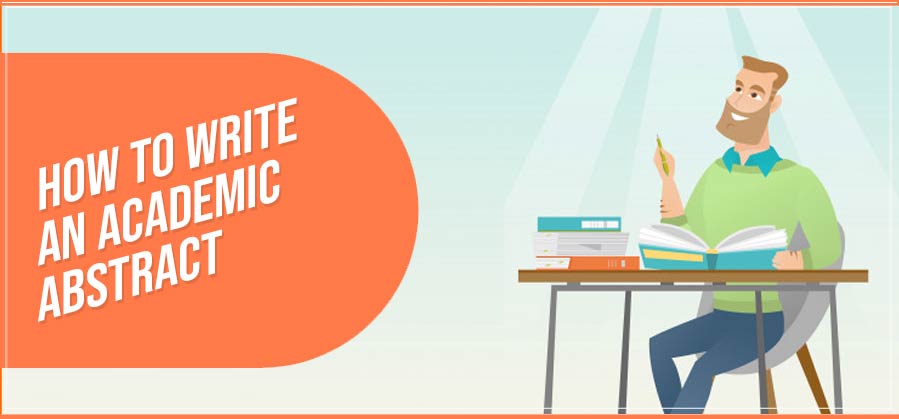

An academic paper without a substantial abstract is simply a bucket with multiple holes in it. In other words, there is no use in having an academic paper with a poorly written abstract. If you too have been witnessing a number of issues while writing the academic paper and the abstract, the article will be highly beneficial in offering you the required piece of guidance.
The abstracts of multiple scientific or abstract papers are at times poorly written. This is caused due to several reasons, such as a biased picture, lack of informative content, absence of indented formatting, and so on. An abstract offers the primary highlights of a paper and it is mandatory to draft it well in order to offer a lightning guide to the entire paper for the readers.
Before we analyze the essential steps to write an abstract, let us first understand what an abstract is.
An abstract refers to a short summary of the research paper which is usually written in the length of a paragraph and is as long as 6-7 sentences, or about 250 words maximum. It can be defined as a short summary of a long work and aims to report the primary aim and outcome of the research being conducted on your paper. This will clearly give an understanding of the aim to the readers and through the abstract; readers will be able to ascertain the objective a lot better.
The abstract needs to be written at the end, once the rest of the content has been properly completed. Students need to include the abstract on an entirely different page while writing a thesis or a dissertation. This needs to be cited before the table of contents and after the acknowledgment and title page section. An abstract needs to comprise the following things:
Understand the primary requirements for writing the abstract
The paper you are entrusted to write will mostly have the guidelines and requirements, irrespective of the type of paper you are writing. Before you start the process, it is essential to refer to the guidelines and rubrics that were presented to scrutinize a number of issues. It is important to analyze the below-mentioned points:
Abstracts are essentially written to guide readers with the work. Abstracts in scientific journals tend to allow readers to decide whether the research discussed pertains to his interest or not. It will help readers garner a quick understanding of the argument. Hence consider the audience you are writing the abstract for, depending on which the writing style will vary.
Although abstracts tend to accomplish the same goal, there are two kinds of styles that are adhered to, descriptive and informative. You need to adhere to any one of them as instructed to you. While informative abstracts are a lot longer and need technical research, descriptive abstracts on the other hand are ideal for academic papers that are short.
Descriptive abstracts are explanatory in nature and tend to enunciate the goal, aim, purpose, and method of the research performed. This is usually written in about 100-200 words.
Informative abstracts are a summarized version of the entire paper and offer a complete overview of the research performed. As they are a lot longer than the other type, hence it can extend from a few words to an entire page.
The information written in both types usually is the same, however, the length tends to vary.
A critical abstract is not used much although it might be important for a few courses. This type tends to accomplish a similar result, however, will relate the work or study being discussed to the personal research performed. It might critique the methods or results garnered.
The reader while reading your abstract essentially wants to know why the research is crucial and its purpose. Start off the abstract by considering a few essential questions such as:
This is the part where you need to enlist the methods you have taken to conduct your research. If you have done the entire research yourself, you need to discuss the research while including variables and the approach in particular. Make sure you describe the evidence and support your claim well. If things get way too complicated for you, you can bank upon a paraphrasing tool for helping you through the process.
The methods need to be written in past simple tense because it needs to cite actions that have already been completed. Do not evaluate any obstacle you have witnessed in this step as the primary goal is to offer a sight to the approach undertaken and not to enunciate the strength and weaknesses. Additionally, do not forget to offer a complete overview of the sources which have been of utmost importance. You can get in touch with professionals to offer you essay writing help in addition to detailed guidance on an abstract.
If the abstract has been written to be published in a journal, you need to enable readers to be able to find it easily. This is when readers will usually search for the queries across online databases and hope for the paper to be visible across search engines. Hence, to ensure that the paper is visible, you need to use 5-10 essential keywords and phrases which are extremely important in defining your paper.
At this step, it is essential to summarize the entire results in one section. This part needs to be presented in either past simple tense or present simple tense. Depending on the length and complexity of the research, you should include results here. Do not forget to highlight the most important findings of your research which will allow your readers to draw attention to the most important parts and understand the paper in a gist. A referencing generator can help students in ways more than one.
As the name suggests, this should bring your abstract to an end and offer a proper closure to it. Here, you need to address the findings well and explain the meaning properly. A conclusion needs to be written in all kinds of abstracts, whether descriptive or informative. You need to address the following questions in an informative abstract:
The abstract as with any other piece of writing is an essential part of your paper that needs to be revised as and when completed. Irrespective of the length written, it is mandatory that you perform a thorough revision in order to identify errors if any. Such errors can vary from spelling errors to punctuation errors to even grammatical ones. Hence, make sure it has been revised well and formatted properly without any errors. Additionally, do not forget to run your abstract and paper through a plagiarism checker to identify plagiarized sentences, if any.
A guide to writing a research paper has been enlisted as above. However, students tend to feel confused and petrified while writing an academic paper and its subparts. If you too have been feeling the same way, you need to get in touch with the professionals at livewebtutors.com to secure online assignment help. The professionals are equipped to perform the abstract extremely well to help you acquire a remarkable result.
Read More: Finest Online Tools for the Students for Better Study